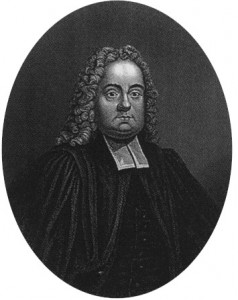In the recent news of the reported death of Libyan dictator Muammar Gadhafi, I was able to catch up with a couple of well-known Bible scholars to get their perspectives on this situation. First, King Solomon had this to say:
“Know also that wisdom is sweet to your soul; if you find it, there is a future hope for you, and your hope will not be cut off. Do not lie in wait like an outlaw against a righteous man’s house, do not raid his dwelling place; for though a righteous man falls seven times, he rises again, but the wicked are brought down by calamity. Do not gloat when your enemy falls; when he stumbles, do not let your heart rejoice, or the LORD will see and disapprove and turn his wrath away from him. Do not fret because of evil men or be envious of the wicked, for the evil man has no future hope, and the lamp of the wicked will be snuffed out. Fear the LORD and the king, my son, and do not join with the rebellious, for those two will send sudden destruction upon them, and who knows what calamities they can bring?” (Proverbs 24:14-22)
When I asked Matthew Henry to comment on Solomon’s perspective, he added this:
1. The pleasure we are apt to take in the troubles of an enemy is forbidden us. If any have done us an ill turn, or if we bear them ill-will only because they stand in our light or in our way, when any damage comes to them (suppose they fall), or any danger (suppose they stumble), our corrupt hearts are too apt to conceive a secret delight and satisfaction in it-Aha! so would we have it; they are entangled; the wilderness has shut them in-or, as Tyrus said concerning Jerusalem (Eze. 26:2) I shall be replenished, now she is laid waste. “Men hope in the ruin of their enemies or rivals to wreak their revenge or to find their account; but be not thou so inhuman; rejoice not when the worst enemy thou hast falls.” There may be a holy joy in the destruction of God’s enemies, as it tends to the glory of God and the welfare of the church (Ps. 58:10); but in the ruin of our enemies, as such, we must by no means rejoice; on the contrary, we must weep even with them when they weep (as David, Ps. 35:13, 14), and that in sincerity, not so much as letting our hearts be secretly glad at their calamities.
2. The provocation which that pleasure gives to God is assigned as the reason of that prohibition: The Lord will see it, though it be hidden in the heart only, and it will displease him, as it will displease a prudent father to see one child triumph in the correction of another, which he ought to tremble at, and take warning by, not knowing how soon it may be his own case, he having so often deserved it. Solomon adds an argument ad hominem-addressed to the individual: “Thou canst not do a greater kindness to thy enemy, when he has fallen, than to rejoice in it; for them, to cross thee and vex thee, God will turn his wrath from him; for, as the wrath of man works not the righteousness of God, so the righteousness of God was never intended to gratify the wrath of man, and humour his foolish passions; rather than seem to do that he will adjourn the execution of his wrath: nay, it is implied that when he turns his wrath from him he will turn it against thee and the cup of trembling shall be put into thy hand.”




you asked Matthew Henry????? How old are you? 😛
Great post by the way, it just dazzled me that you said that you asked him…who according to that picture died in 1714 …
You write, “the righteousness of God was never intended to gratify the wrath of man, and humour his foolish passions.” “Vengeance is mine,” says the Lord.
It is a hard thing not to be happy when an evil man meets his doom. Yet that is indeed what we are called to do.
At the end of the Marine Corps’ Rifle Creed, it says that we will not rest until there is no enemy, but peace. Even though the death of Gadhafi is a good thing, we can not forget how we are really in just one big game of “Whack-a-mole” until God’s Kingdom again reigns on earth.